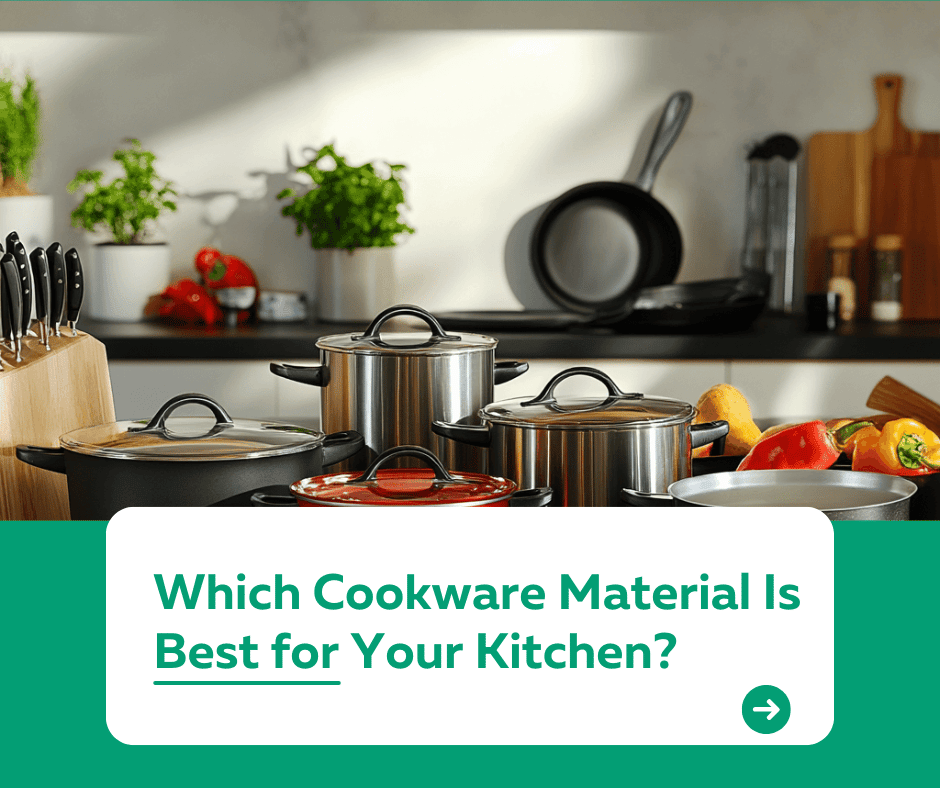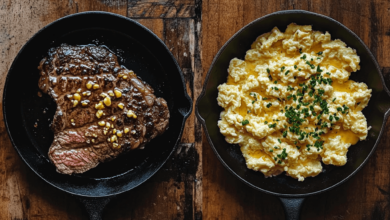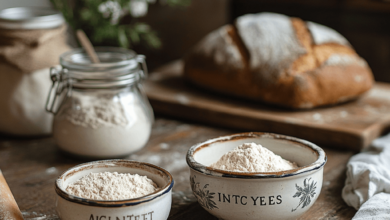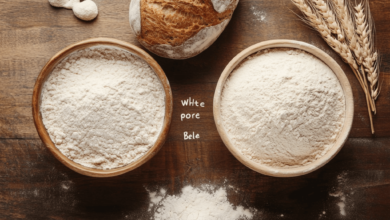Which Cookware Material Is Best for Your Kitchen?

Introduction
When it comes to cookware, choosing the right material is key to enhancing your cooking experience. Which cookware material is best for your kitchen? With options like stainless steel, cast iron, nonstick, and ceramic, each offers unique benefits. Let’s dive into a detailed comparison to help you make an informed decision.
1. Stainless Steel Cookware
Why Choose Stainless Steel?
- Durability: Long-lasting and resistant to rust and corrosion.
- Even Heating: Offers consistent heat distribution, especially with multi-ply bases.
- Versatility: Works on all stovetops, including induction.
Best For:
- Browning and searing.
- Cooking acidic ingredients without reacting to food.
Cons:
- Requires oil or butter to prevent sticking.
- Can be harder to clean compared to nonstick options.
2. Cast Iron Cookware
Why Choose Cast Iron?
- Heat Retention: Retains and distributes heat evenly.
- Durability: Can last for decades with proper care.
- Nonstick Surface: Develops a natural nonstick coating when seasoned.
Best For:
- Searing, frying, and baking.
- High-heat cooking.
Cons:
- Heavy and requires seasoning to prevent rust.
- Not dishwasher safe.
3. Nonstick Cookware
Why Choose Nonstick?
- Ease of Use: Food doesn’t stick, making it perfect for beginners.
- Easy Cleanup: Requires minimal effort to clean.
- Low-Fat Cooking: Requires little to no oil.
Best For:
- Eggs, pancakes, and delicate foods.
- Quick and easy cooking.
Cons:
- Less durable; coating can wear off over time.
- Not suitable for high-heat cooking.
4. Ceramic Cookware
Why Choose Ceramic?
- Eco-Friendly: Made from natural materials, free from harmful chemicals.
- Aesthetic Appeal: Often comes in vibrant colors and stylish designs.
- Nonstick Surface: Naturally nonstick without synthetic coatings.
Best For:
- Low to medium heat cooking.
- Simmering sauces and soups.
Cons:
- Less durable than stainless steel or cast iron.
- Prone to chipping and scratching.
5. Copper Cookware
Why Choose Copper?
- Superior Heat Control: Excellent conductivity for precise temperature adjustments.
- Elegant Design: Adds a luxurious touch to your kitchen.
Best For:
- Delicate recipes requiring precise heat control.
- Sauces and candies.
Cons:
- Expensive and requires regular polishing.
- Reacts with acidic foods unless lined with stainless steel.
6. Glass Cookware
Why Choose Glass?
- Transparency: Allows you to monitor food while cooking.
- Non-Reactive: Safe for acidic and alkaline ingredients.
Best For:
- Baking and serving.
- Storing leftovers.
Cons:
- Fragile and prone to breaking.
- Poor heat conductivity.
Tips for Choosing the Right Cookware
- Consider Your Cooking Style: Choose nonstick for ease, cast iron for searing, or stainless steel for versatility.
- Evaluate Maintenance Requirements: Opt for materials you can care for properly.
- Check Compatibility: Ensure the cookware works with your stovetop.
- Budget: Invest in quality pieces that will last.
Conclusion
The best cookware material depends on your cooking habits, budget, and personal preferences. Stainless steel offers versatility, cast iron is perfect for high-heat cooking, and nonstick is ideal for quick meals. Explore your options and elevate your culinary experience! For more kitchen tips, visit our Kuestion.com.




